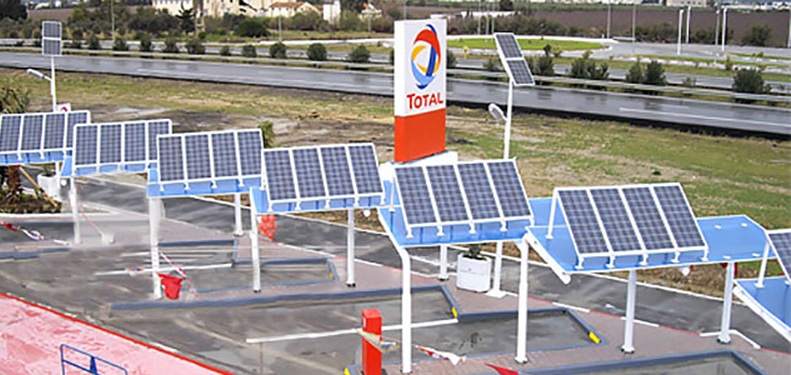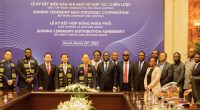The Ghanaian subsidiary of the French hydrocarbon company Total has launched a program to equip half of its service stations with solar panels.
Total Ghana‘s solarisation program targets approximately 120 service stations, or 50% of the 240 distributed throughout this West African country. The operation was launched on July 3, 2018, through the Tema station (a city of 172,900 inhabitants, located on the Atlantic coast 25 kilometres east of Accra). A total of 225 m² of solar panels were installed. They produce 35 kilowatts to meet the energy needs of the distribution centre.
Total Ghana’s CEO presents this project as not only the implementation of his company’s modernisation plan, but also the company’s alignment behind Ghana’s energy vision “The world’s energy future, including Ghana’s, is shaped by the twin challenges of climate change and growing electricity demand. As a Ghanaian oil marketing company, we are proud to complement the Government of Ghana’s efforts to prioritise the use of solar energy,” said Eric Fanchini. The initiative is part of a convergent strategy of Ghana and Total in favour of renewable energies.
200,000 mini solar power plants in Ghana soon
Ghana is firmly committed to the development of solar energy. After inaugurating in October 2015 one of the largest solar power plants in Africa (the Aiwiaso solar power plant in the west of the country, which covers 183 hectares for 155 MW), “Ghana’s ambition is to install 200,000 solar power plants that will serve households, businesses and public infrastructure,” announced its president, Nana Akufo-Addo at the International Solar Alliance (ISA) in March 2018 in New Delhi, India.
Total Ghana’s approach is therefore part of this energy anchor. Before its solarisation programme for service stations, the company already offered various solar solutions. Including solar lamps and solar kiosks. These have been deployed in three service stations to provide customers with access to telephone charging stations and Wi-Fi. Total Ghana has been active in this country since 1961, selling petroleum products and employs approximately 175 people.
Total in “low carbon” mode
On a completely different scale, Total is resolutely pursuing its development in renewable energies, which began in 2011 with the takeover of the American SunPower (for $1.6 billion). Since then, the group’s strategy has not changed. For him, the future lies in the gas and renewable energies electricity sector, of which the oil company intends to become a major player. The group has since continued its buyouts to become a producer and distributor of low-carbon energy. The most recent movements to date were the acquisition in 2016 of battery manufacturer Saft, the acquisition in 2017 of a 23% stake in Eren Renewable Energy (EREN RE) and the acquisition of the French energy efficiency company GreenFlex. In April 2018, Total acquired the French electricity and gas distributor Direct Énergie, which had itself bought the renewable energy producer Quadran a few months earlier…
In this context, the equipping service stations with solar panels may seem anecdotal. Above all, it is very symbolic and demonstrates that renewable energies are now considered as the future, in Africa and elsewhere in the world, on all levels of this globalised French group.
Boris Ngounou







